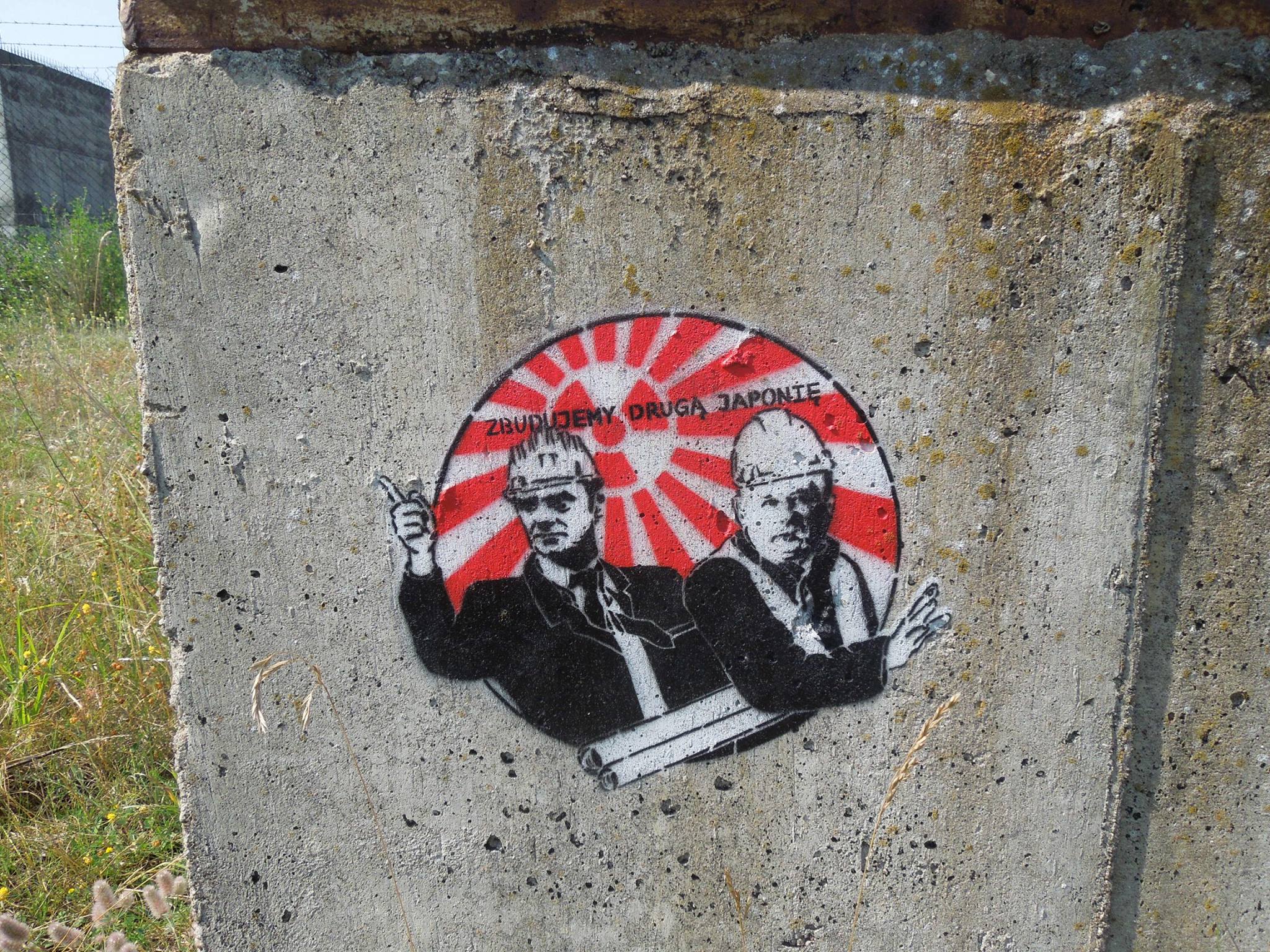Nuclear power in Poland: An unholy idea?
This article originally appeared in “Meanwhile in the Baltics…“, a collection of articles written by the graduates of 2016 Solidarity Academy – Baltic Sea Youth Dialogue, organised by the European Solidarity Centre in partnership with the Council of the Baltic Sea States.
May 15, 2017 -
Ruben Dieleman
-
Articles and Commentary

“All the elements from the periodic table can be found there”, the man grumbled.
From the great St. Mary’s Church Tower in Gdańsk, I noticed the vague, distant silhouette of a big hill, in an eastward direction. A local watched me gazing and told me it was the “Fosfory” dump, apparently consisting entirely of nuclear waste. “It is probably the greatest cause of cancer among Gdańsk’s inhabitants”, he said.
That is quite shocking, if true. Is this the way the country treats its nuclear waste and energy production? What is Poland’s nuclear energy policy now, and what will it be in the future? I asked Jan Haverkamp, an expert consultant on nuclear energy and energy policy for Greenpeace Central and Eastern Europe. For more than 15 years, he has been based in Gdańsk, working on nuclear and renewable energy production and processing policy.
Haverkamp describes the current situation. The radioactive waste in Poland comes from industry, hospitals and from the existing research reactor: the MARIA reactor in Świerk. It is the only functioning reactor besides those used for research. Currently, Poland is searching for a proper way and place to store its radioactive waste. This is a very slow process. Right now, most of the high-level waste is being shipped back to the deliverer of the reactor, which is in Russia. “The amounts of that waste are not so great – just a few dozen kilograms per year. But low-level waste is also within the lower numbers. In nuclear countries over 95 per cent of radiation is concentrated in waste from power plants.”
Poland has been planning to develop a nuclear energy programme since the 1970s, though the Chernobyl catastrophe caused a 20-year hiatus, Haverkamp says. But the reports on what to do with the high-level waste of those plans are “basically cut and paste copies of the plans that Finland and Sweden have”. He does not consider the reports to be realistic in the Polish context and it is hard to estimate when the nuclear programme will see its inception. “Definitely not before 2027, as claimed by the government”, he asserts.
Looking at the details, the current plans estimate that by 2030, between four and six future reactors will produce 6,000 megawatts. Those reactors may be built 80 kilometers north of Gdańsk, in the municipalities of Żarnowiec and Choczewo. While Poland most certainly is capable of putting large swathes of nature under concrete, according to Haverkamp, it cannot afford the project. This argument is gaining ground.
“Building one reactor that would deliver 1,000 megawatts would cost at least five billion Euro.” He calls the Polish government’s earlier estimation of €3.5 billion “pure nonsense”. “30 billion Euros at minimum for two power plants with two to three reactors each – Poland simply does not have the money. Moreover, pushing this project through would increase the energy prices by three times of their current market value”, he predicts.
Environmentally, having to process the nuclear waste, or spent nuclear material that these reactors will produce, is also very likely to cause problems. Where the waste will be stored is not entirely clear from the reports that Haverkamp refers to. As for how it will be stored, he expects that deep geological storage may be used, in salt layers or in granite, for instance. “This is an option, but technically, there are many downsides. Corrosion and leaks in the layers and containers are big risks. Other countries, such as Finland, France and Sweden are investigating new options right now. What happens in Poland is dependent on what happens abroad.”
“Altogether, this project will only cause loss. The Polish government did not produce any report evidencing a detailed plan for proper management of future nuclear waste, nor does it know what the exact costs will be,” Haverkamp asserts.
In the meantime, there is pressure on the country to switch to other sources of energy. Poland still uses coal to generate almost 90 per cent of its electricity, but the mines in the south are no longer profitable. It does not want Russia to be its energy provider, mostly for geopolitical reasons. Poland has signed the Paris Climate Agreement and is actively involved in other global governance energy initiatives. Renewable energy sources are slowly being discovered, but wind and solar energy are only getting a foothold recently. Through feed-in tariffs like the system that existed in Germany, it could become more financially attractive and safe for smaller companies and individuals to invest in renewable, environmentally friendly energy resources. But the Polish government is hesitant. “They’re scared to undermine the position of King Coal”, Haverkamp says.
Poland faces a lot of challenges for its future energy policy. It is still unclear whether the new nuclear reactors will be built and how their waste will be dealt with. It seems that to abandon the project altogether would be the most sensible idea. As for the hill seen from the tower, according to Haverkamp, it does not contain nuclear waste. “I have been walking around there with a dosimeter and it does not show signs of increased radiation. But the hill certainly does contain a lot of other undefined crap.”
Image by Greenpeace / Jan Haverkamp
Ruben Dieleman currently pursues an MSc in international administration and global governance at Gothenburg University.

































